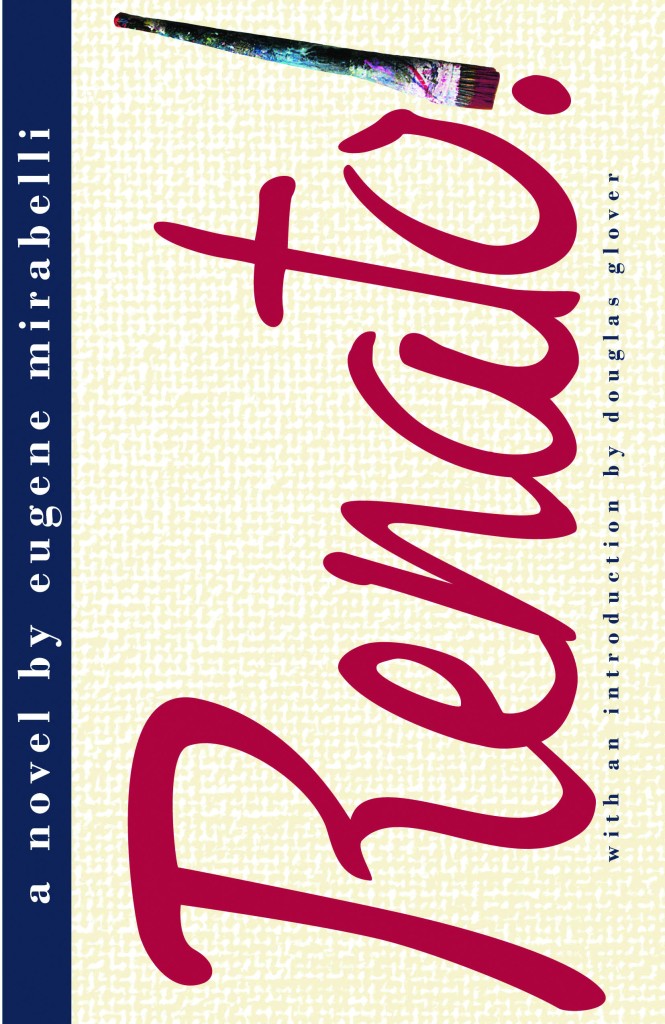
Renato! by Eugene Mirabelli, McPherson & Company, $20, 577 pages.
“The gods are immortal and we are not, and no, we are not free to live like gods. We die. We don’t want to be dispersed or dissolved into the void, we don’t want to lose each other.”
Appearing in the waning pages of Eugene Mirabelli’s masterful multi-generational literary opera, Renato!, these musings on the meaning of mortality capture humankind’s zest for love and life, at least, through the eyes of the titular protagonist, Renato Stillamare, a Boston-based painter and descendant of the prolific Sicilian-American Cavallus. Renato! is, on the surface, an autobiography of an aging artist forced to witness his own reputation erased with each passing year, and not for lack of talent, which he has in spades, but an unavoidable outcome of outliving his patrons. In a cruel twist of fate, his work improves with each year that he falls further away from the limelight. Securing an exhibition for his paintings in a tony Newberry Street gallery while also reconciling his tumultuous personal life consumes his days.
But this novel is more than an artist’s fight against mortality. The first half of Renato! offers a joyful genealogical history of the Cavallu family, populated by prostitutes, scientists, bankers, engineers, revolutionaries, and goddesses. (The latter is no laughing matter; some aristocratic Italian families do trace their heritage to interminglings between gods and mortals.) In this case, the family patriarch, Angelo Cavallu, is part stallion, with “equine hindquarters, those powerful flanks and long shins,” and Ava is his stunning bride. Those qualities make their way down the family tree–lusty, industrious men, beautiful, magical women–rendering this 150-year chronicle at once wholly believable and enchanting. The Cavallu family leaps through time and history, with appearances by General Giuseppe Garibaldi, finance con artist Charles Ponzi, and French pilot Louis Paulhan rooting these characters firmly in a convincing reality.
The three books between these covers were previously published separately in different forms but stitched together here seamlessly by Mirabelli. The tone shifts noticeably in the second and third books, where Renato is no longer the jubilant raconteur of wild ancestral anecdotes; rather, after a tumultuous youth, he is now seventy years old, living separately from his wife and mistress, wondering whether he will ever see his paintings grace a gallery wall again. Pushing up against barriers tests the spirit, and Renato is forced to explore the various facets of life and his relationships with those he loves. Another dramatic shift comes in the chapters following the death of Alba, Renato’s wife and guiding light, bringing with it an honest and raw assessment of grief.
Beautiful, hot-blooded, Renato! (which, it should be noted, comes from the Latin word for reborn), is a reminder that though the world may change as well as our respective places in it, love will ground us, should we choose to embrace it.
Like his protagonist, at age ninety, Mr. Mirabelli has persevered through the years and the publication of this book is nothing less than what appears to be the culmination of a lifetime spent burnishing words to smooth perfection. The Rockefeller grant recipient and professor emeritus at SUNY Albany has written ten novels that have been translated into French, Hebrew, Polish, and Sicilian, and in October, he will be recognized by the Albany Public Library system at its annual gala as this year’s Literary Legend.

Embrace Mr. Mirabelli’s captivating work and prepare to be richly rewarded.